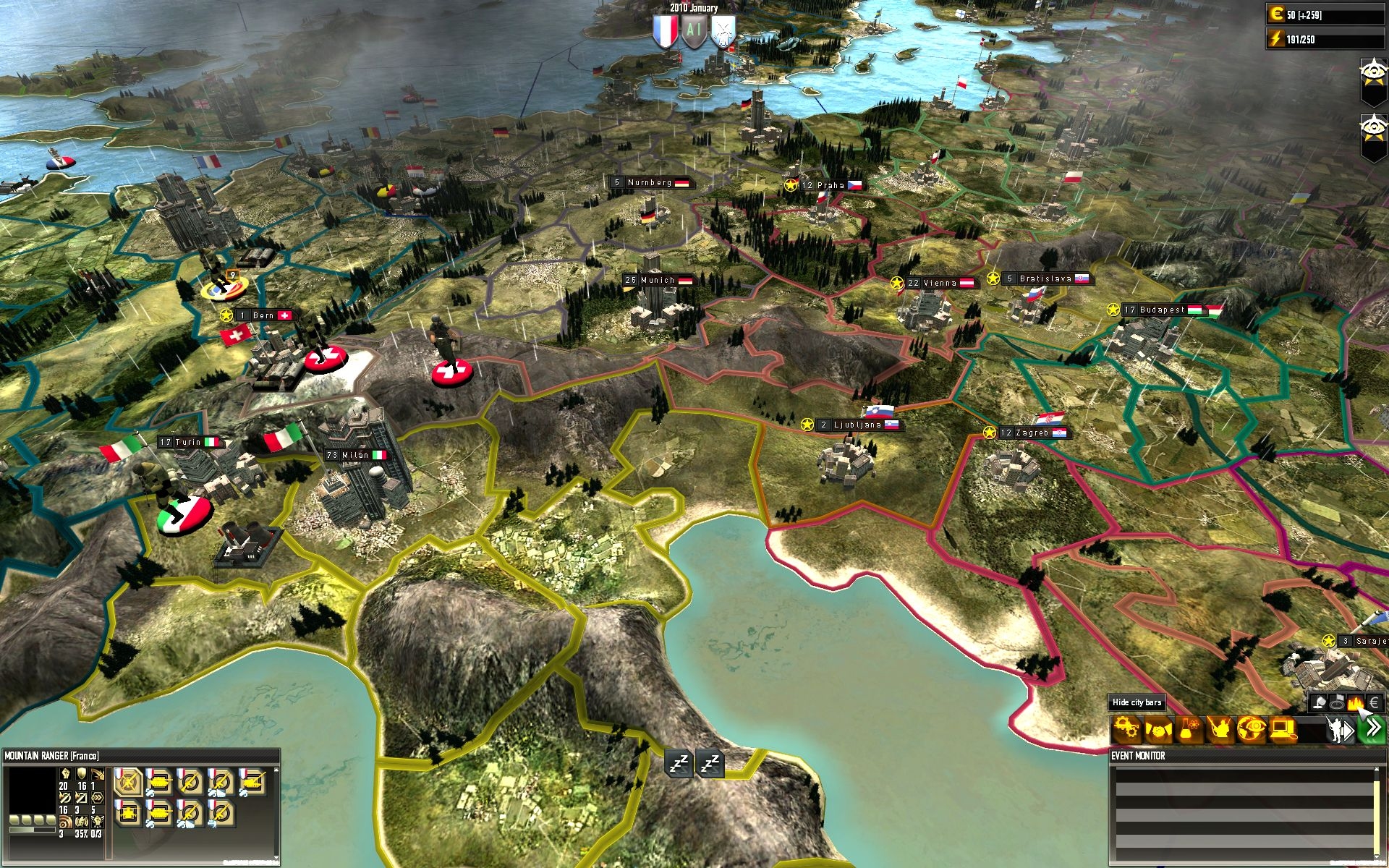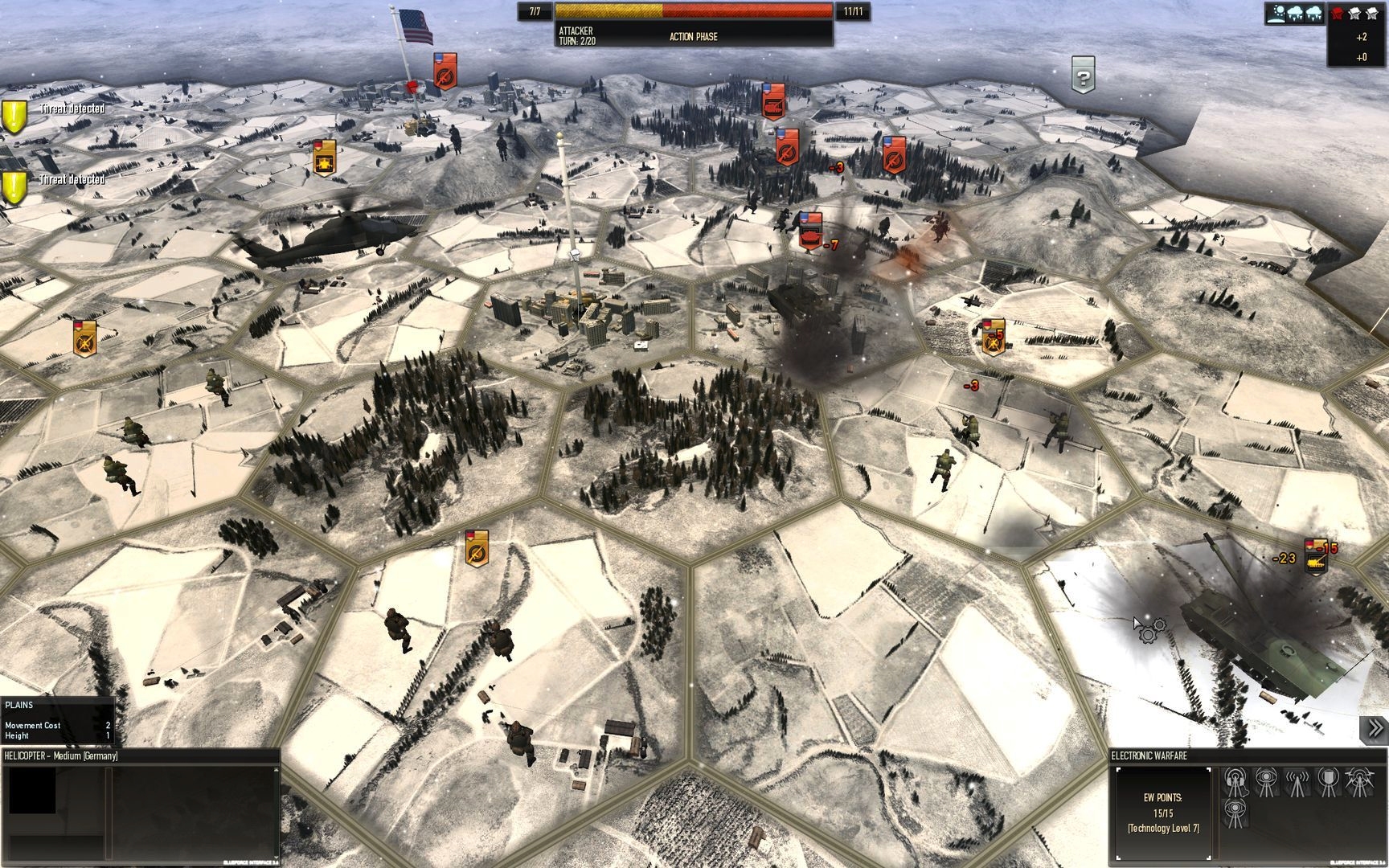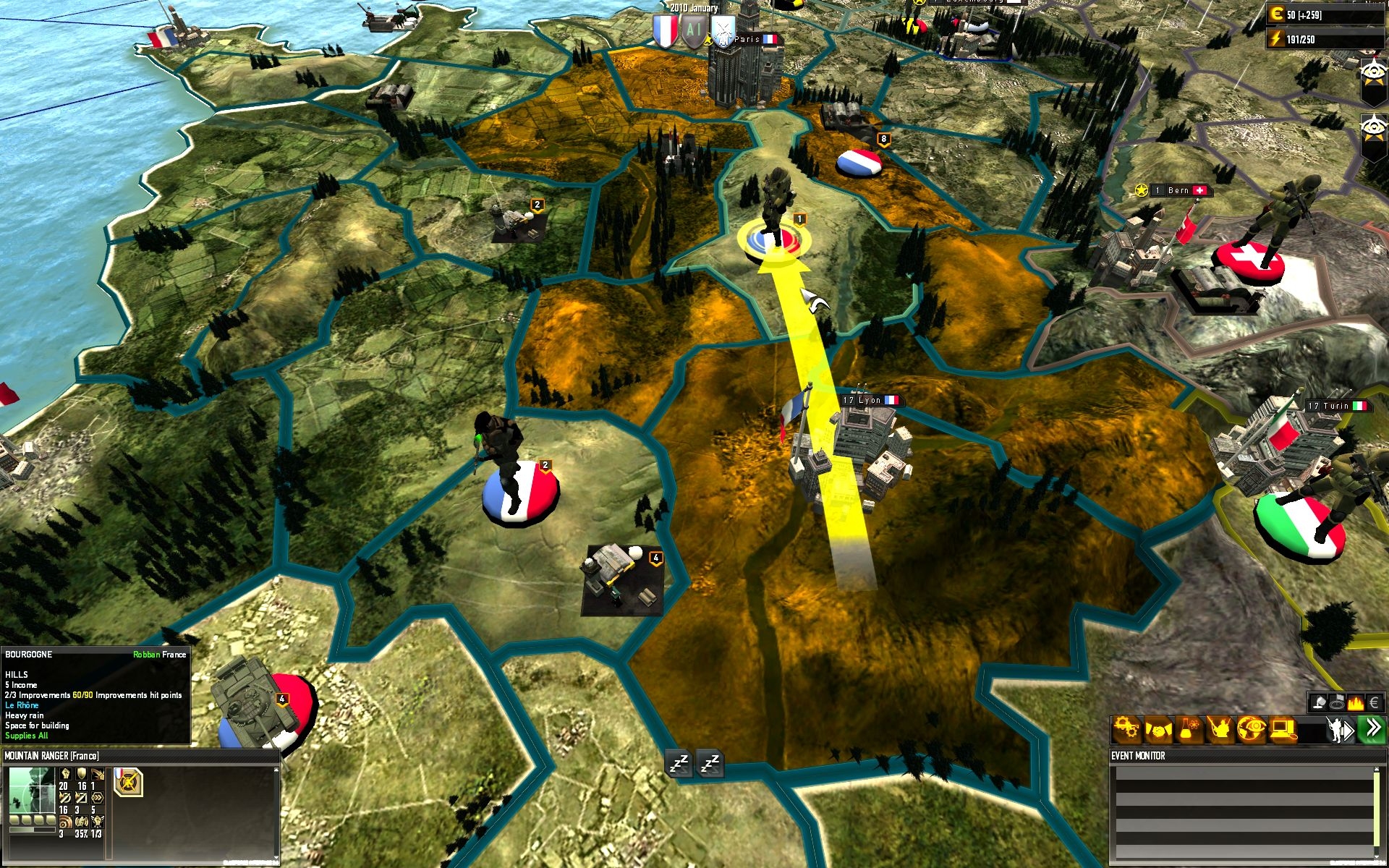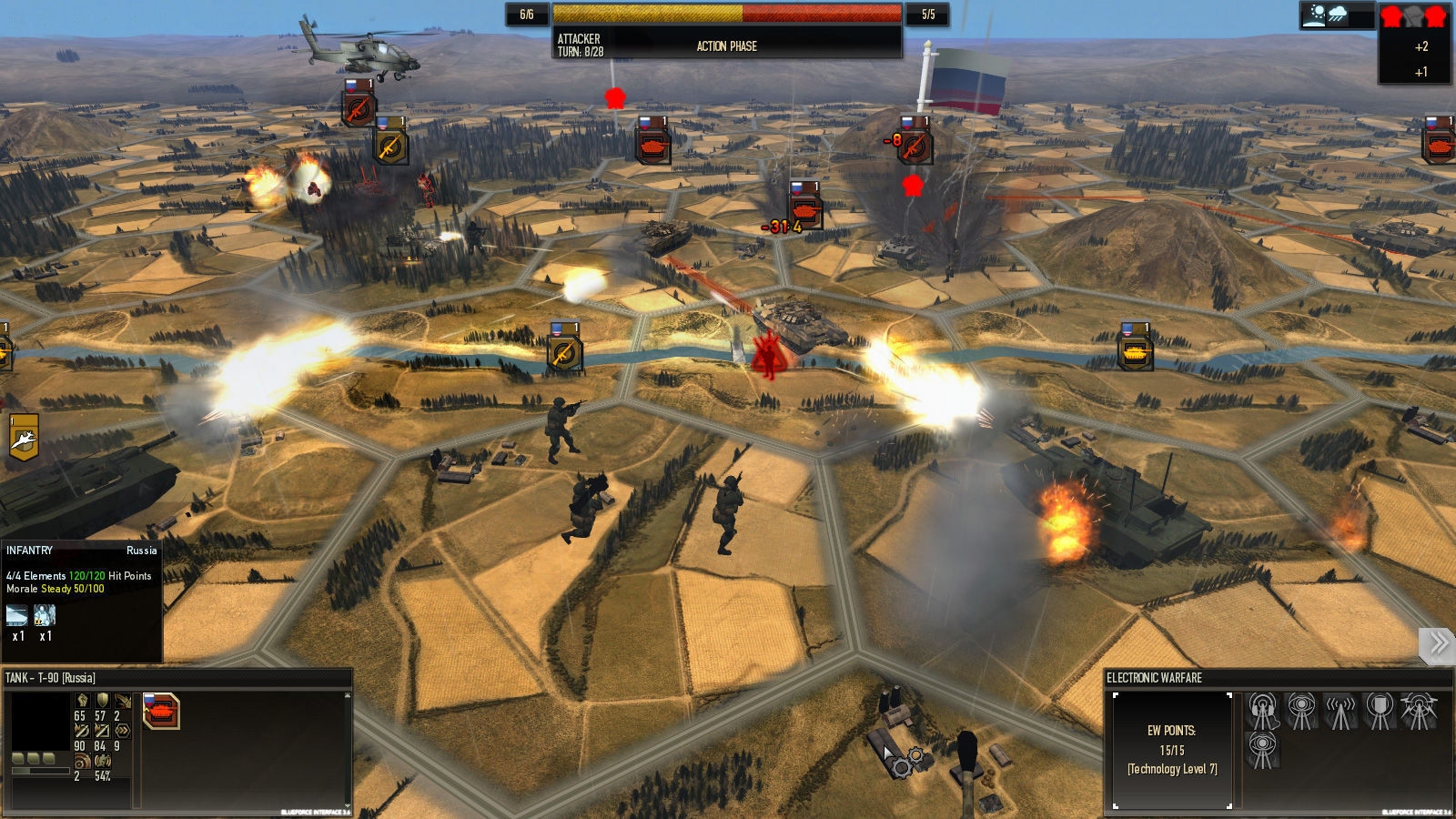I’ve written hundreds of reviews, previews, and retrospectives during my twenty-odd years as a games inspector. As many of these appeared in the British version of PC Gamer magazine and nowhere else, now and again something from my archive may appear as one of THC’s daily posts. Back in 2011, SimBin briefly strayed from the racing line in order to publish Storm: Frontline Nation, “a slick mix of Total War and Panzer General.”

European unity is a house of cards according to ambitious Swedish strategy studio Colossai. The minute the coming energy crisis arrives, Angela Merkel will send her Panzers scuttling towards Alsace, Berlusconi will take up where Mussolini left off in North Africa, and Cameron will attempt to reunite Ireland the bloody way.
If this sounds far-fetched, then like me, you’re probably going to find Storm a little hard to take. Colossai have created a slick mix of Total War and Panzer General, but the strat map turmoil is so chaotic and implausible, that you may wind-up wishing they’d opted for a WW2 or Napoleonic theme instead.

With a more engaging setting, comelier visuals, and less rabid AI, this could have been a very impressive effort. The idea of blending Total War-style nation management and army movement, with hexy battles, is a sound one. Despite the fact there’s no nation-specific units, scraps are agreeably tense. Infantry scurry for the cover of forest and city hexes, helo gunships prowl, mobile artillery batteries trade shells over mountain ranges and rivers. By the time you’ve grasped the implications of the dynamic weather, night phases, and spell-like electronic warfare buffs, you’re probably hooked.

But then the battle ends and you’re hurled back into the insane chaos of that strat layer. Denmark have declared war on Croatia! North Bosnia has formed a defensive alliance with Latvia! The UN-style Allied Nations have intervened in Switzerland! Please make it stop! Or at least try a little harder to explain why Europe is suddenly angrier than a beehive in a cement mixer.
(DISCLAIMER. If, by the time you read this, Greek debt, Russia’s energy policy, or the Libyan conflict have somehow caused Europe to descend into frantic internecine warfare, please add 20% to score*.)
* 61%


Is it still possible to buy this game somewhere? Couldn’t seem to find it on Steam. Thanks.
Green Man Gaming has it.
Thanks, Thrudda.